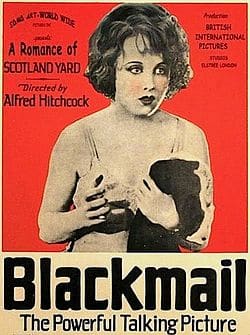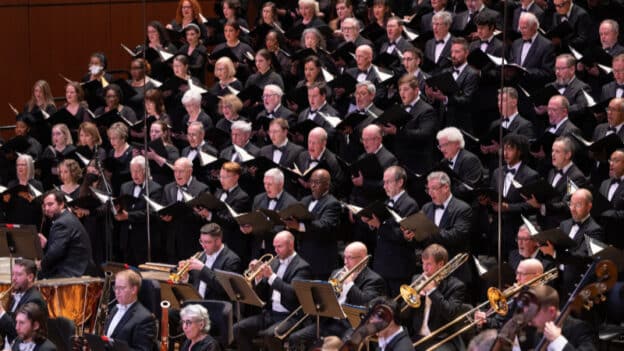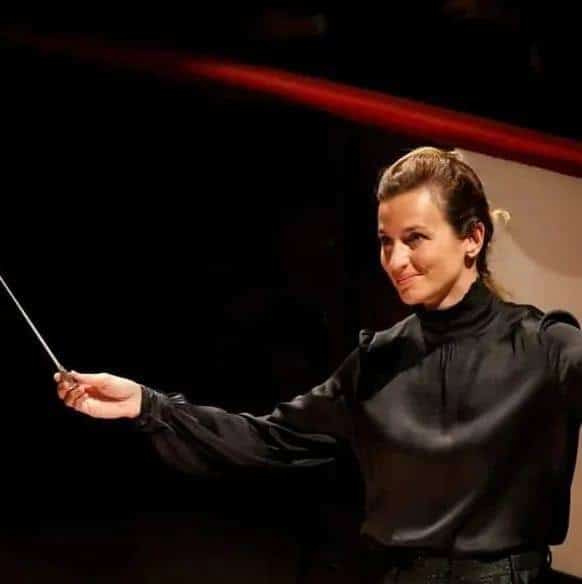Hitchcock’s silent film gets new music
NewsFrom a press release:
On March 3, the Basel Sinfonietta presents »#Metoo, Hitchcock«, the world premiere of a new film score by Moritz Eggert for Alfred Hitchcock’s silent film classic »Blackmail«. It will be conducted by new Principal Conductor Titus Engel, whose October debut in Basel and two guest appearances at the Ruhrtriennale in Bochum drew rave reviews and sold-out houses. The premiere will take place as part of the 3rd subscription concert at Burghof Lörrach (Germany). The concert will be recorded as a co-production with ZDF/ARTE and 2eleven music film and broadcast on ARTE at a later date.
«Blackmail» is a 1929 British thriller, masterfully directed by Alfred Hitchcock. With a remarkably topical subject, Hitchcock tells a true #metoo story in this classic silent film set in the context of the time. He has his main character successfully fight against various forms of male intrusiveness and blackmail – in powerful images that remain compelling to this day…
Eggert says: ‘»Blackmail« displays Hitchcock’s predilection for »musical« cuts, which actually have a rhythm of their own and already evoke the later cinematic style without the music having existed yet. Writing a new score for a Hitchcock film therefore has to be be based on this style in some way; it would almost be a perversion to underlay it all with a generic New Music aesthetic that bears no relation to Hitchcock’s intentions and only vaguely illustrates everything.’






A very effete Cyril Ritchard plays Anny Ondra’s #metoo assailant.
I’d sure like to see that! Hopefully it will start a trend: Hitch’s early and silent British films are very hard to acquire and what DVD transfers have been made are awful. Thanks for the heads up!
Note the artwork. This is the silent VERSION of England’s first talking picture. Not all the theaters were equipped, so a silent version had to be prepared. The talking version is brilliant. Hitchcock grasped the potential of sound instantly. After she stabs her attacker and flees, her landlady describes the murder to the other borders. Her words are nothing but inaudible mumbles. Only the word “KNIFE” cuts through, the only word the murderess hears. The actress, Anny Ondra, couldn’t speak English. Not exactly dubbed, her dialogue was recorded off screen by a different actress as she mouthed the words, or so I’ve read. She’s more natural in the silent version.
Yes. The breakthrough in sound occurred during the making of this film. Hitchcock had the skill to pivot quickly and introduce sound into it. It wasn’t easy, since the camera and sound equipment were placed in a soundproof booth and they had to shoot the film behind window glass.
Michael Powell in his autobiography says that the chase through the British Museum was his idea, setting the stage for future Hitchcock chase scenes in famous places – like the Statue of Liberty and Mount Rushmore.
That was another archetypal “Hitchcock Blonde”, Joan Barry, speaking off camera in a ludicrous “cut glass” accent (Ondra’s character is lower middle-class). Barry went on to star in Hitch’s “Rich and Strange” (32). She was lovely.